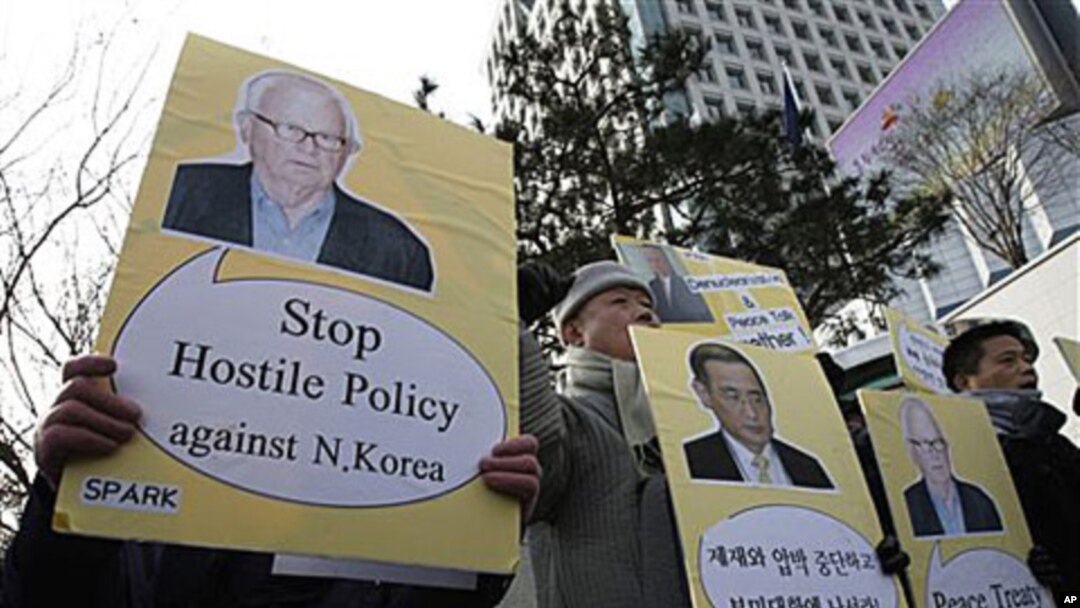Diplomatic efforts on resuming talks with North Korea appear to be gaining traction.
In what U.S. diplomats characterize as a "listening trip," American envoys and South Korean officials discussed how to respond to signs that North Korea may be willing to resume talks.
As their meeting began in Seoul, Foreign Minister Kim Sung-hwan remarked to the leader of the U.S. delegation, Stephen Bosworth, that the public here is closely following his visit.
"It shows that Korean people are very concerned about the situation on the peninsula," he said.
"I can understand that. I hope it also shows that the Korean people are very confident of the very strong relationship that exists between the Republic of Korea and the United States and are impressed by and reassured by the very close coordination of policy we've been undertaking," said Bosworth.
Ambassador Bosworth will also hold talks this week in Beijing and Tokyo.
As he left the Foreign Ministry, Bosworth was asked if the United States is pressuring South Korea to return to the six-party talks. He replied, "Never."
The talks - involving both Koreas, the United States, China, Japan and Russia, aim to end North Korea's nuclear weapons programs in return for diplomatic and economic benefits.
They have been stalled for more than two years.
On Tuesday U.S. State Department spokesman P.J. Crowley said the next move is up to North Korea.
"We are open to multilateral and bilateral dialogue, but right now the responsibility rests on North Korea to show that such dialogue, either at a multilateral setting or bilateral setting, will be constructive," Crowley said.
The Korea Herald on Wednesday quoted an unnamed South Korean official saying as soon as Seoul and its allies finalize terms for talks, they will try to deliver them to Pyongyang.
President Barack Obama is to host Chinese President Hu Jintao in two weeks and they are expected to discuss North Korea.
China calls for resuming the six-nation talks to ease tension on the Korean peninsula. But the U.S. and South Korea have said talks can not begin until Pyongyang ends its aggressive behavior and takes steps to meet its promises to end its nuclear programs.
North Korea is blamed for sinking a South Korean warship 10 months ago. It also shelled a South Korean island in November as part of a long-running dispute over the western maritime boundary.
The two Koreas have no diplomatic ties. An armistice has kept the peace since 1953 when a three-year civil war halted.
US, South Korea Discuss Response to North

South Korean protesters with portraits of U.S. special envoy on North Korea, Stephen Bosworth shout slogans during a rally against the U.S. and South Korean policies on North Korea in Seoul, 5 Jan 2011

